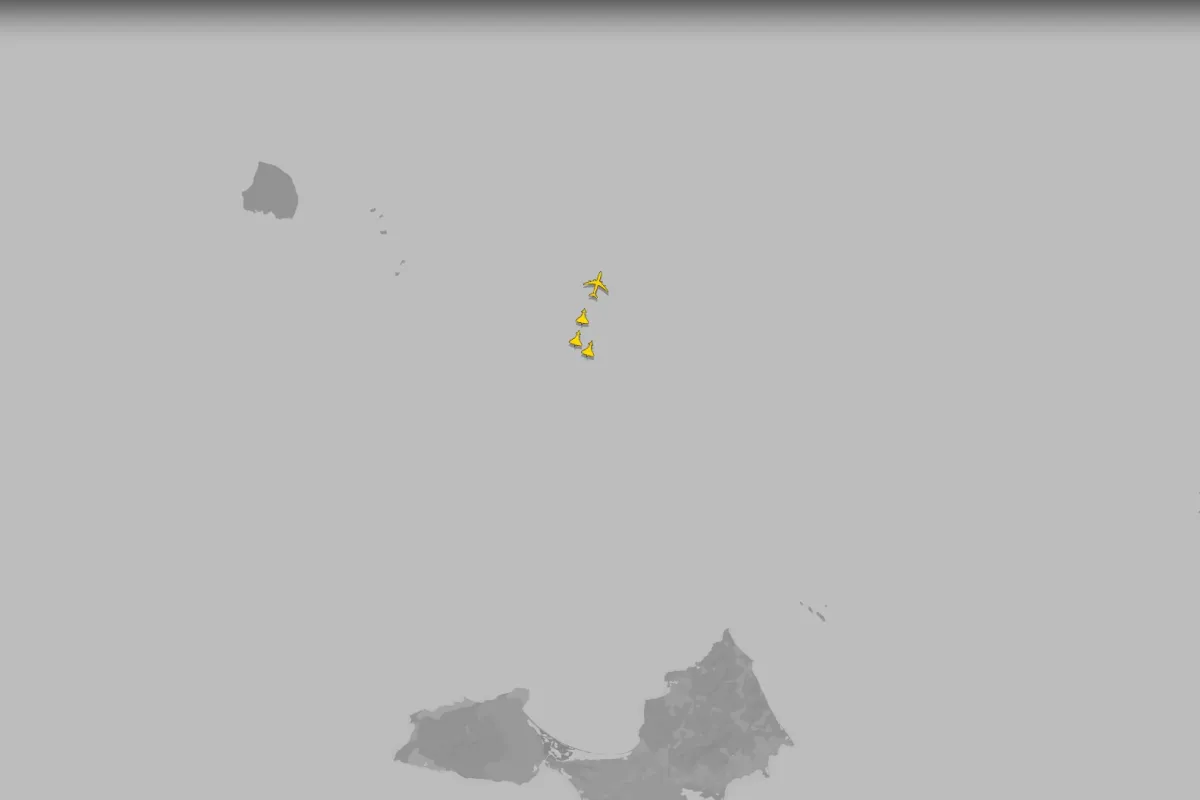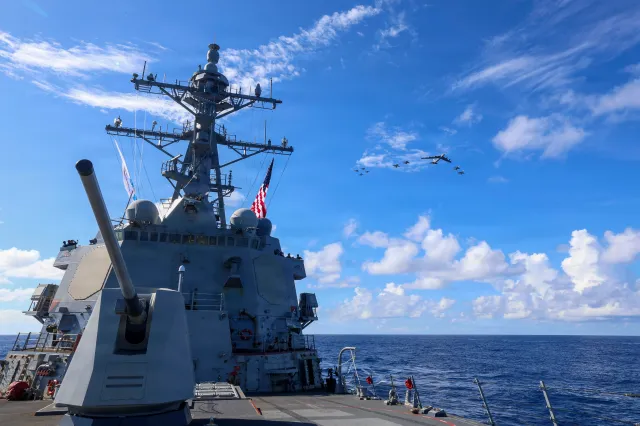
A B-52 bomber flew over the Caribbean Sea and passed near Venezuela on Monday, according to open-source flight-tracking data and reports.
The long-range Stratofortress flight is one of several recent U.S. combat aircraft movements and training activities in the region, part of a broader uptick in military pressure on Venezuelan President Nicolás Maduro’s government. U.S. military aircraft recently operating near Venezuelan airspace include F/A-18 Super Hornets, an RC-135 Rivet Joint and B‑52 bombers.
Why It Matters
What began as a U.S. crackdown on drug-trafficking is fast escalating into a broader power play against Venezuela’s regime. After significantly increasing its military footprint in the southern Caribbean with advanced aircraft and warships, the Trump administration now says “all options” are on the table as part of its mounting pressure campaign.
A key move was Washington’s formal designation of the Cartel de los Soles, a network it alleges is deeply tied to top Venezuelan officials, as a terrorist organization, which came into effect on Monday. Venezuela called the label a “ridiculous scheme” intended to justify an unlawful intervention in Venezuela.
What To Know
A B-52, escorted by F/A-18s, flew north of Caracas in its second mission in five days, likely monitoring drug trafficking near Venezuela as part of Operation Southern Spear, Air & Space Forces Magazine reported on Monday.
According to Flightradar24, two Boeing B-52H Stratofortress bombers and a Lockheed Martin C-130J-30 Super Hercules were the most-tracked flights on Monday night, all heading south over the Americas.
U.S. military forces are deployed in aid of the U.S. Southern Command (SOUTHCOM) mission aimed at supporting President Donald Trump’s stated goal to disrupt illicit drug trafficking.
In a recent interview with the One America News Network, Secretary of Defense Pete Hegseth said the U.S. was unmatched in its ability to strike both on land and at sea, with Operation Southern Spear targeting narco-terrorist drug vessels and trafficking routes. He issued a stark warning to traffickers, saying, “Don’t get in a boat because it’s going to end poorly for you.”
Hegseth said the terror designation gave the department more tools to offer options to the president, adding that they were holding daily meetings to discuss what could be done based on what would be in the best interest of the U.S.

What People Are Saying
Secretary of Defense Pete Hegseth told One America News: “Our options in SOUTHCOM are to get the cartel madness under control, to control our backyard, and from there, we have a lot of options and the president has a lot of options. And he—and he alone—will make a decision about what happens next. Our job here at the strength department, at the War Department, is to make sure he’s got every tool at his disposal.”
Venezuelan Foreign Minister Yan Gil said in statement shared on X in Spanish on Monday: “The Bolivarian Republic of Venezuela urges the U.S. government to correct this erratic policy of aggression and threats, which are firmly rejected by the U.S. people themselves, as these actions harm the development of Caribbean nations and do nothing to contribute to a true and genuine fight against illicit drug trafficking.”
What Happens Next
According to Hegseth, the U.S. is prepared to apply the same long-range pressure it has used against extremist groups overseas if needed in the Western Hemisphere. He did not confirm whether the U.S. military plans to strike land targets inside Venezuela.
